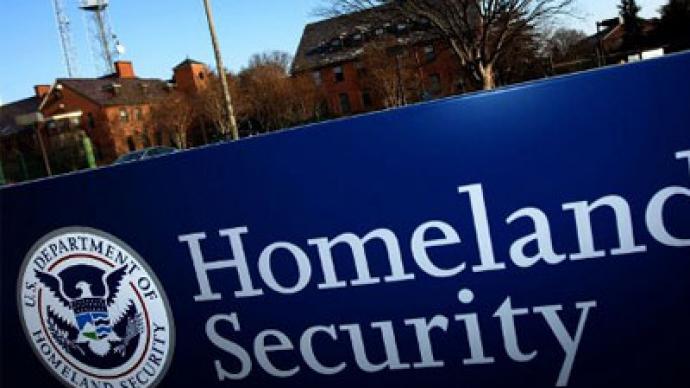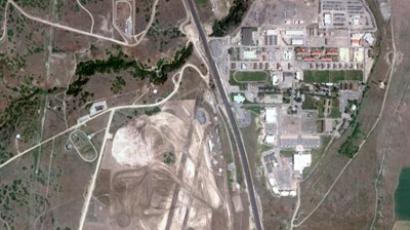Kids’ DNA collection? Possible with Homeland Security

The US Department of Homeland Security is considering collecting DNA from anyone fingerprinted, including children aged 14 and up, with the prospect of lowering the age limit, recent reports reveal.
The FBI’s DNA database can now be boosted by over 1 million new records every year, estimates the Department of Homeland Security (DHS). Still, these people should not be necessarily involved in criminal activity – an administrative detention or arrest will do the trick, as DHS is going to start collecting DNA from anyone it fingerprints. What is more, no court warrant will be involved. When the policy goes into effect, it will affect anyone aged 14+. But the documents, released by the US Immigration & Customs Enforcement (ICE) on the Electronic Frontier Foundation’s request, show the debate is on the table to drop the age. Some DHS programs already began collecting biometrics from kids younger than that as early as in March 2011.In general, DNA collection from kids is not unknown to the US law enforcement system. With the US Marshals and the Drug Enforcement Administration, collecting DNA samples from juvenile offenders is a long-standing policy. But here the key words are “juvenile offenders” as the US Marshals deal with fugitives and transporting convicts, while the DEA is tasked with fighting drug smuggling. This stands away from such things as overstaying your visa or computer hacking, but the DHS seems to favor the practice. At the same time, the Council for Responsible Genetics, a US-based NGO focused on biotechnology, points out that DNA collecting has become widely-used across the US since the policy was introduced by the Department of Justice in 2008.“Today, 44 states collect DNA from anyone convicted of a felony, 39 states collect DNA from those convicted of certain misdemeanors, 28 collect DNA from juvenile offenders, six states collect DNA of all individuals arrested and some states (such as California) have started to retain DNA from individuals identified as ‘suspects,’” reads the statistics on the NGO’s website.The 2008 decree, which took effect in January 2009, provides for “each” state agency to get DNA samples from anyone arrested for a federal offence, such as bank robbery or kidnapping or damaging federal property. The policy also covers “non-United States persons who are detained under the authority of the United States.”DNA can reveal a great deal of private information about its owner, including medical history, predisposition to disease, family background, etc. All the samples, no matter who collects them, become part of the FBI’s Combined DNA Index System database, where most of them are for permanent stay. Any law enforcement structure can access the database, which already contains over 10.5 million entries, and they do not need a warrant to do so.The Department of Justice argues that collecting DNA from all people arrested and non-US persons detained will allow it to find and identify more criminals, solve more crimes, and “prevent and deter subsequent criminal conduct.”For the short term, DHS’s DNA collection program appears quite limited and it remains unclear whether the department has already begun DNA collection. However, given the hard line the authorities have taken in past court cases challenging the practice, the DNA collection policy seems to have every chance of being expanded to ever-larger groups of Americans and immigrants. That is, collecting more DNA while paying less attention to a person’s status.














